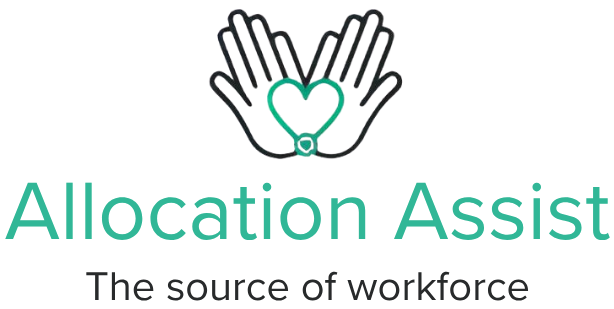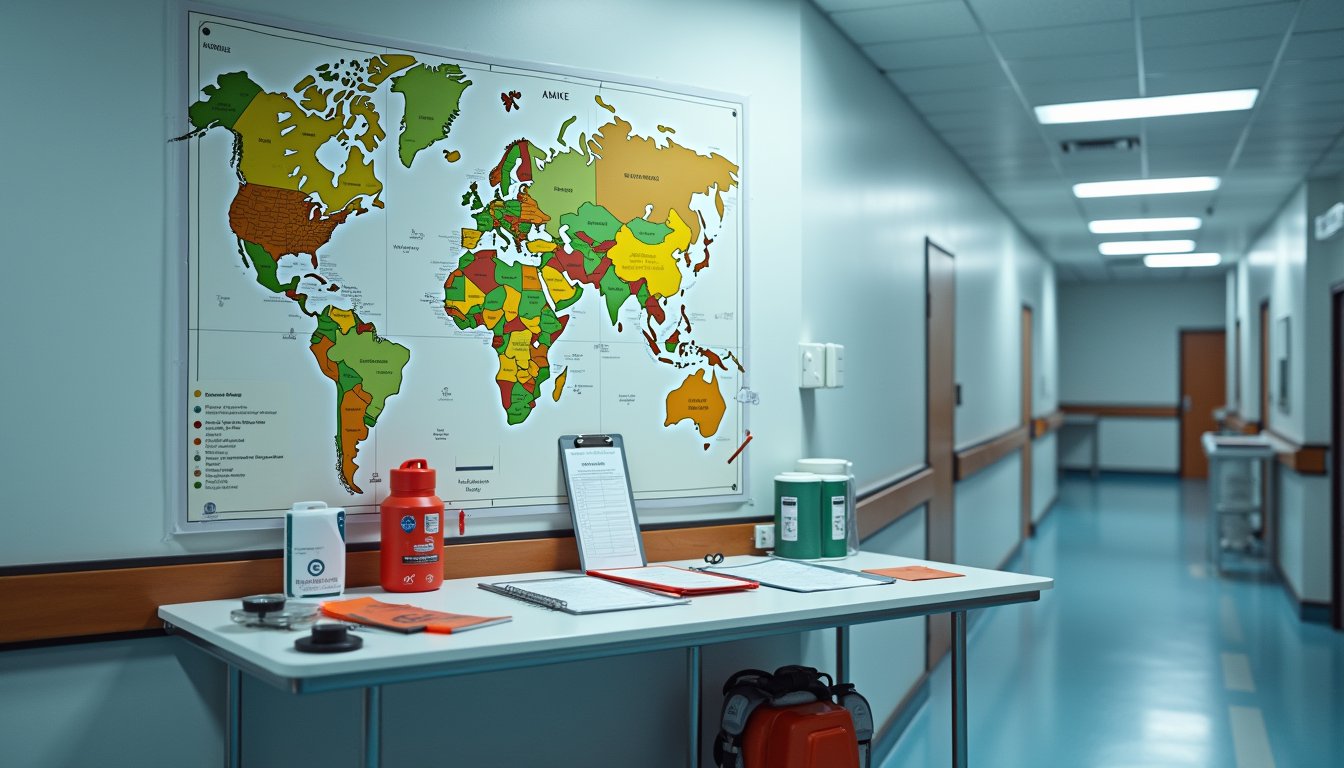To succeed in healthcare administration by 2025, you’ll need expertise in digital health technologies, data analytics, and predictive modeling. You must master remote healthcare management, financial sustainability strategies, and patient engagement platforms while maintaining regulatory compliance. Critical skills include cross-cultural communication, supply chain optimization, and crisis management capabilities. Strong leadership in AI integration and virtual care delivery will position you for the evolving healthcare landscape’s complex demands.
Digital Health Technology Integration

As healthcare systems rapidly evolve, digital health technology integration has become a cornerstone of modern healthcare administration. You’ll need to master AI-driven solutions, telehealth platforms, and digital tools while ensuring compliance with FDA regulations and the EU AI Act. Understanding healthcare interoperability is essential as you’ll manage the integration of new technologies with legacy systems. The rapidly growing digital health market demonstrates the increasing importance of technological expertise in healthcare administration. The WHO’s commitment to systematic assessment of country-specific needs and matching them with innovations will guide implementation strategies.
You must develop expertise in real-time AI applications for clinical decision support while addressing implementation challenges. With over 80% of health system executives anticipating significant impacts from generative AI, you’ll need to balance innovation with patient safety and regulatory requirements. Modernizing infrastructure requires cloud environment migration to enhance operational efficiency. Your role will include strategic planning for telehealth sustainability, optimizing resource allocation, and ensuring your organization maintains compliance with evolving CMS reimbursement guidelines for digital health services.
Data Analytics and Predictive Modeling
To succeed in modern healthcare administration, you’ll need to integrate population health data across multiple sources while ensuring HIPAA compliance and data integrity. Your ability to leverage predictive analytics will help forecast care demands, allowing for proactive resource allocation and improved patient outcomes. Implementing real-time analytics dashboards enables you to monitor key performance indicators, identify emerging trends, and make data-driven decisions that enhance operational efficiency. Mastering data visualization storytelling is essential for effectively communicating complex healthcare insights to stakeholders. With healthcare facilities generating 50 petabytes annually, administrators must develop robust systems to effectively manage and analyze this massive volume of data. The comprehensive curriculum beginning Fall 2025 equips healthcare administrators with advanced expertise in database management and data visualization techniques.
Population Health Data Integration
While healthcare systems generate massive amounts of data daily, successful population health management depends on sophisticated data integration and analytics capabilities. You’ll need to master unified health information platforms that enable real-time data sharing across preventive and clinical services. Understanding FHIR standards and Data Integration Building Blocks (DIBBs) is vital for achieving true data interoperability between systems. Advanced risk models help identify high-priority patients requiring immediate intervention and customized care plans. The VHA has demonstrated success with FHIR-compliant APIs that standardize data from multiple sources for comprehensive analytics.
To effectively manage population health initiatives, you must be proficient in working with standardized data harmonization processes and automated workflows. You’ll need to leverage cloud-based solutions and predictive modeling tools that combine clinical, PGHD, and environmental data for thorough population assessments. Skills in implementing closed-loop management systems and interpreting PGHD dashboards will be essential for driving value-based care through actionable insights from integrated data sources. The ability to utilize AI-powered capabilities within integrated platforms will become increasingly important as healthcare systems aim to improve efficiency and outcomes.
Predictive Care Demand Forecasting
Building on integrated population health data capabilities, predictive care demand forecasting represents a transformative advancement in healthcare administration. You’ll need to master AI-driven predictive analytics platforms that combine EHRs, genomic data, and social determinants to optimize resource allocation and prevent operational bottlenecks. Adopting zero-based budgeting approaches ensures every resource allocation is strategically justified. Integrating real-time insights from comprehensive healthcare data ecosystems enhances the accuracy of forecasting models.
Your expertise must extend to demand forecasting models that leverage machine learning algorithms for both short-term capacity planning and long-term strategic projections. Successful implementation requires thoughtful change management when integrating these systems into existing clinical workflows. You’ll be responsible for implementing data-driven decision-making processes that reduce staff burnout while improving patient outcomes. Understanding how to monitor and mitigate algorithmic bias is essential, as is the ability to interpret real-time analytics for dynamic staffing adjustments. These skills will help you achieve measurable improvements in operational efficiency, including a 15% reduction in nurse overtime costs.
Real-Time Analytics Dashboards
Real-time analytics dashboards serve as the nerve center of modern healthcare administration, demanding proficiency in both data visualization and predictive modeling. You’ll need to design intuitive interfaces that facilitate real-time collaboration among healthcare teams while integrating CRM-compatible tools for immediate action. Patient vital tracking enables early detection of health complications through continuous monitoring of key metrics. Physician productivity data helps establish performance standards and optimize workload distribution across providers. The integration of TEFCA standards ensures secure and consistent health data sharing across organizations nationwide.
To maximize dashboard usability, you must aggregate multiple data streams, including EHRs, claims data, and social determinants of health, into unified displays that enable quick decision-making. You’ll be responsible for implementing dynamic KPI tracking systems that monitor patient satisfaction, ER wait times, and financial metrics. Additionally, you’ll need to guarantee these dashboards comply with governance frameworks while maintaining HIPAA standards. Essential skills include the ability to normalize both structured and unstructured data, establish benchmarks against industry standards, and facilitate seamless interoperability between various healthcare systems.
Remote Healthcare Management
You’ll need to establish clear performance metrics for virtual healthcare teams, focusing on patient satisfaction scores, response times, and care coordination effectiveness. To maintain secure remote operations, you must implement robust infrastructure protocols that protect patient data during telehealth sessions and remote monitoring activities. Your security measures should include end-to-end encryption, multi-factor authentication, and regular compliance audits aligned with HIPAA requirements and emerging digital care standards. Implementing AI-driven automation tools can significantly reduce administrative workload while improving the accuracy of remote care delivery.
Virtual Team Performance Metrics
Effective management of remote healthcare teams requires robust performance metrics that go beyond traditional productivity measures. To optimize virtual team dynamics, you’ll need to implement thorough performance evaluation systems that track both individual and collective achievements while maintaining high standards of patient care.
- Deploy integrated technology solutions that combine time-tracking, project management, and communication platforms to monitor real-time productivity and collaboration levels
- Establish clear accountability frameworks through transparent role definitions and structured progress reporting
- Focus on output-based assessments rather than time-based metrics, utilizing OKRs to measure actual impact
- Create a culture of continuous improvement by implementing recognition systems and maintaining open dialogue about performance challenges
These metrics will help you identify skill gaps, streamline workflows, and guarantee your virtual healthcare teams maintain peak efficiency while delivering quality care.
Remote Infrastructure Security Protocols
As healthcare organizations increasingly shift toward remote operations, implementing robust security protocols for virtual infrastructure has become paramount to protecting sensitive patient data and maintaining regulatory compliance. You’ll need to master remote security measures like encryption protocols, multi-factor authentication, and zero-trust architectures to guarantee infrastructure resilience.
| Security Protocol | Critical Implementation |
|---|---|
| Data Encryption | Mandatory ePHI protection at rest/transit |
| Access Control | Multi-factor authentication deployment |
| Threat Monitoring | AI-driven analytics for real-time detection |
| Network Security | WPA3 protocols with role-based access |
| Compliance Training | Regular phishing and device security updates |
Your role requires implementing thorough security frameworks that integrate advanced encryption, continuous monitoring, and automated threat detection while maintaining HIPAA compliance. You’ll need to stay current with evolving cybersecurity threats and guarantee your remote infrastructure remains resilient against emerging vulnerabilities.
Financial Sustainability Strategies

Financial sustainability in healthcare administration demands a multi-faceted approach that combines revenue optimization, cost management, and strategic growth initiatives. You’ll need to master financial risk assessment and cost control measures while leveraging technology and partnerships to maintain competitive advantage.
- Optimize reimbursement models by implementing AI-driven analytics for claims processing and maintaining DSH payments through proactive Medicaid redetermination
- Control labor expenses through strategic workforce planning, including flexible staffing models and burnout prevention programs
- Reduce operational costs by shifting to outpatient settings and implementing just-in-time inventory systems
- Drive revenue through strategic partnerships, including retail health collaborations and value-based care models that share risk across providers
These strategies will help you navigate healthcare’s evolving financial landscape while ensuring long-term organizational stability.
Patient Experience and Engagement
Modern patient experience and engagement strategies require mastering digital solutions while maintaining a human-centered approach to healthcare delivery. You’ll need to excel at implementing omnichannel communication platforms and AI-powered tools that streamline patient interactions while collecting valuable patient feedback.
To succeed, you must understand how to leverage data-driven personalization and self-service portals that empower patients to manage their healthcare journey independently. Your role will involve deploying engagement strategies that incorporate virtual health assistants, telehealth platforms, and remote monitoring solutions. You’ll also need expertise in developing culturally sensitive communication approaches and shared decision-making tools. Focus on integrating patient-reported outcomes into care delivery while ensuring your digital solutions enhance, rather than replace, meaningful human connections in healthcare settings.
Regulatory Compliance and Risk Management

Healthcare administrators must navigate an increasingly complex regulatory landscape shaped by evolving HIPAA mandates, ACA requirements, and emerging technology standards. You’ll need to master multiple regulatory frameworks while staying current with compliance audits and risk management protocols.
To succeed in regulatory compliance and risk management, you must develop:
- Advanced cybersecurity expertise to implement multi-factor authentication, network segmentation, and encryption protocols under HIPAA’s 2025 requirements
- Precise documentation skills for meeting accelerated ACA reporting deadlines and responding to CMS verifications within 14-day windows
- Strategic understanding of AI governance and risk management frameworks to align with emerging NIST guidelines
- Quality reporting proficiency to manage mandatory ASCQR measures and maintain Medicare reimbursement compliance while adapting to new rural health billing requirements
Cross-Cultural Communication
Effective cross-cultural communication has become a cornerstone of successful healthcare administration as patient populations grow increasingly diverse. You’ll need to master cultural awareness and language proficiency to guarantee ideal patient outcomes in today’s multicultural healthcare environment.
To bridge communication gaps, you must implement thorough solutions including interpreter services, technology-driven translation tools, and standardized communication frameworks like SBAR. Your success will depend on understanding how demographic factors such as age, gender, and education level influence patient interactions. You’ll also need to navigate family dynamics, particularly in collectivist cultures where healthcare decisions often involve extended family networks.
Investing in cultural competence training for your staff and leveraging digital solutions like telemedicine platforms with multilingual capabilities will help you deliver culturally sensitive, safe, and effective care.
Supply Chain Optimization
As supply chains grow increasingly complex in today’s healthcare landscape, you’ll need to master AI-driven optimization and data integration strategies to maintain operational excellence. Building supply chain resilience requires proficiency in predictive analytics, risk mitigation, and vendor collaboration platforms that streamline operations across your healthcare network.
- You must leverage AI-powered analytics to forecast demand fluctuations and prevent critical supply shortages
- You’ll need to implement cross-functional dashboards that unite clinical and supply chain teams behind shared KPIs
- You should utilize blockchain technology to enhance transparency and strengthen vendor collaboration
- You must develop expertise in sustainability metrics to optimize distribution routes and reduce carbon footprints
These skills will enable you to navigate disruptions, maintain regulatory compliance, and drive operational efficiency while meeting evolving healthcare delivery demands.
Crisis Management and Emergency Preparedness
While modern healthcare organizations face an increasingly complex threat landscape, you’ll need to develop thorough crisis management capabilities that span multiple domains. Mastering crisis leadership competencies will enable you to navigate uncertainty, make rapid decisions, and maintain operational continuity during emergencies. You must excel at collaborative decision-making across departments while balancing ethical resource allocation.
Your role requires monitoring real-time organizational dynamics and coordinating cross-departmental responses to both clinical and non-clinical threats. You’ll need to build capacity for managing multiple crises simultaneously, such as handling cyberattacks during public health emergencies. This involves implementing structured training programs, conducting scenario-based drills, and establishing systems-based oversight structures that integrate emergency response efforts with community partners.
Frequently Asked Questions
How Do Healthcare Administrators Balance Work-Life Boundaries in High-Stress Environments?
You’ll need to prioritize both stress management and time management to maintain healthy work-life boundaries. Set clear limits on your 55+ hour workweeks by establishing designated offline hours and using flexible scheduling when possible. Leverage organizational support systems, including remote work options and wellness resources. Don’t hesitate to delegate tasks and communicate your boundaries openly with your team to prevent burnout and maintain personal relationships.
What Certifications Will Be Most Valuable for Healthcare Administrators in 2025?
You’ll find the CPHQ and CPHRM among the most valuable credentials for healthcare administrators. These healthcare certifications emphasize quality improvement and risk management, which are increasingly critical. The CHISP certification will be essential as healthcare technology expands, while the CHC proves valuable for guiding through complex compliance requirements. Don’t overlook the CHFP if you’re focusing on financial leadership, as it’ll help you optimize healthcare systems and develop strategic initiatives.
How Often Should Healthcare Administrators Update Their Professional Skills and Knowledge?
You should engage in continuous education and skill enhancement throughout your career as a healthcare administrator. It’s crucial to complete at least 36 hours of formal continuing education every three years, but you’ll want to update your knowledge quarterly through workshops, webinars, and industry conferences. You should also conduct self-assessments every six months to identify gaps in your expertise and adapt to emerging healthcare trends and technologies.
What Personality Traits Are Most Important for Success in Healthcare Administration?
You’ll need strong empathy skills to succeed in healthcare administration, as understanding both patient and staff perspectives is essential. Your leadership qualities should include emotional intelligence, adaptability, and decisive decision-making abilities. You must demonstrate integrity, resilience under pressure, and excellent communication skills. Being detail-oriented while maintaining a big-picture outlook will help you balance complex healthcare demands and lead teams effectively.
How Do Administrators Maintain Staff Morale During Major Organizational Changes?
To maintain staff morale during organizational changes, you’ll need to focus on proactive change management and consistent staff engagement. Keep communication channels open through regular updates and anonymous feedback systems. You should implement recognition programs that celebrate small wins and offer tangible rewards. Don’t forget to provide professional development opportunities and manage workloads effectively. Remember to demonstrate empathy by participating in frontline activities and offering mental health support.









